Existing User Log In
New User Registration
Register for a free account to gain full access to the VGChartz Network and join our thriving community.



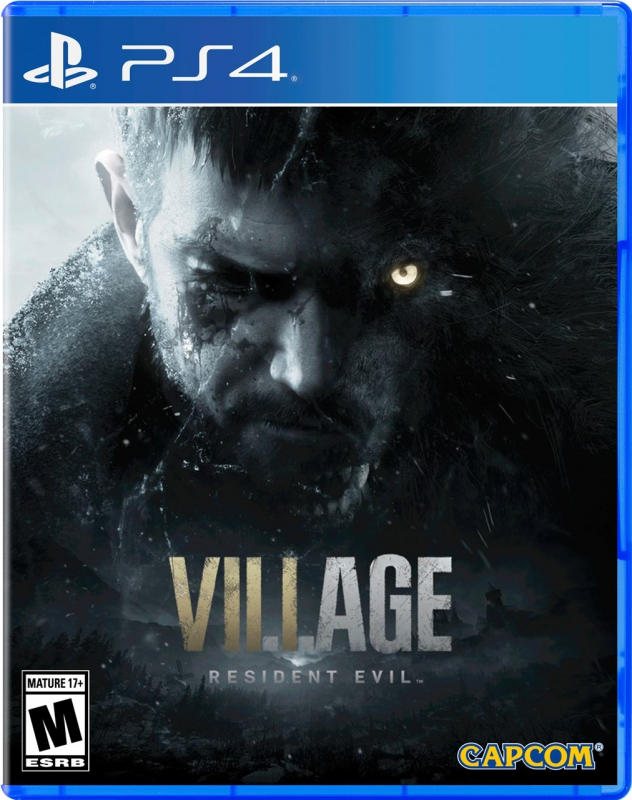

America - Front
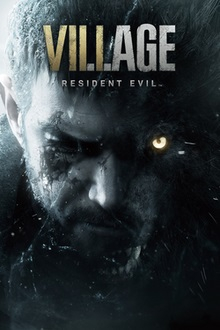

America - Back

Capcom
Action-Adventure
 05/07/21 Capcom
05/07/21 Capcom  (Add Date)
(Add Date) (Add Date)
(Add Date)
| Owners: | 4 | |
| Favorite: | 0 | |
| Tracked: | 0 | |
| Wishlist: | 0 | |
| Now Playing: | 0 | |
It's appropriate that the Resident Evil franchise is all about mutation, evolution, and the rewriting of genetic code. For its 25 years on the planet the series has constantly morphed and reinvented itself, starting with slow-burn "survival-horror" — a term Capcom coined to advertise the premier game — then leaning into third-person shooting and subsequently "dramatic horror", before eventually reverting back to its origins with a sprinkling of first-person hide-and-seek gameplay. With the latest entry, Resident Evil Village, the series has metamorphosed again, this time into an amalgam of several previous installments. It's a bold, ambitious experiment that, despite its incongruous nature, marks the best Resident Evil game in a generation.
Village picks up a few years after the events of Resident Evil 7, during which everyman Ethan Winters traveled to the Louisiana bayou to rescue his lost wife Mia from unknown horrors (if you skipped 7, there's a helpful recap at the beginning of the game). Now, Ethan and Mia are settled down in Europe with their newborn Rose, trying to lead a normal life but haunted by the past. When disaster strikes the young family, and Rose is kidnapped, Ethan finds himself back in a familiar spot: marching into a den of evil to retrieve the most precious person in his life.
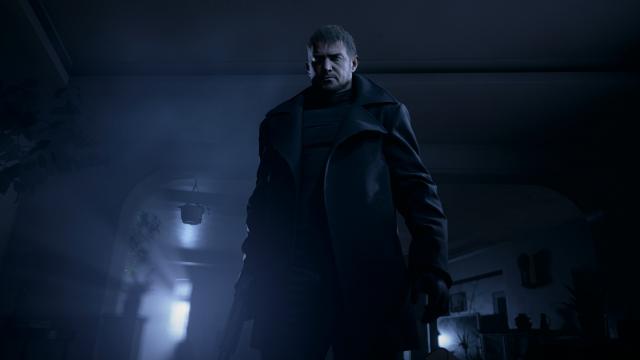
The father-searching-for-daughter plot device is a bit tired at this point, but it gets the job done. Rose is really just a MacGuffin to get Ethan to the titular village, a vaguely European hamlet where things have gone very, very wrong. Once there the narrative takes off, twisting and turning in subversive ways, and introducing several memorable locations and characters. There's a fascinating rogues' gallery of villains in the game, headlined by the meme-worthy Lady Dimitrescu (a sultry, sadistic giantess) and Heisenberg (an arrogant metal-manipulating mutant with complicated ambitions).
If there's a weak point to the narrative design of Village, it's Ethan himself. He's just not a very charismatic character, particularly when stacked up against series mainstay Chris Redfied. He's also very chatty, which undermines some of the tension in the game.
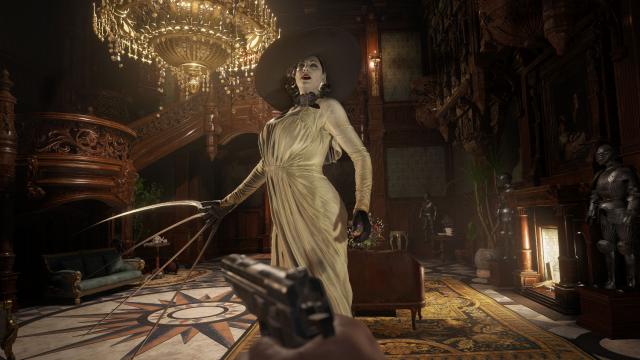
The most successful part of the story in Village, conversely, is the way in which it draws you in with only a fragment of information and keeps you wanting more. At first, a town swarming with ghouls, werewolves, and vampires seems alien and inexplicable, even within the macabre mythology of Resident Evil. Yet the scribes at Capcom do a masterful job of slow-dripping information to keep you invested, before finally revealing the full truth of the village and its monsters, along with revelations about Chris and the Winters' family. Against the odds (and with a little retroactive continuity) Village eventually fits quite neatly into the Resident Evil canon, with links to Resident Evil 7 and games before.
Those narrative links to earlier games in the franchise are fitting, since Village also relies on previous installments for its mechanics, level designs, and gameplay conceits. Indeed, the game feels at times like a Resident Evil "greatest hits" album, similar in makeup to The Evil Within, which sampled elements from two generations of scary games to create something like a masters' thesis of video game horror. Village takes a similar tack, albeit one with far more polish.
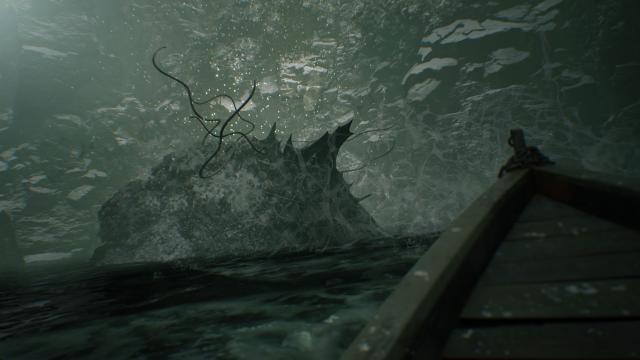
Each area in Village feels like its own thing. The opening hour, with its desolate village, rampaging werewolves, and barricades, is a clear nod to Resident Evil 4. Castle Dimitrescu, which comes next, is akin to Resident Evil 7 and Resident Evil before it — a sprawling, interconnected mansion with monsters, locked doors, puzzles, and secrets. House Beneviento follows in the tradition of Frictional's first-person horror games like Amnesia and Penumbra, while the reservoir, with its aquatic threat, reverts back to Resident Evil 4. Then there's the factory, which goes full-on Resident Evil 5, thanks to its focus on combat and precision-aiming. Finally there's a brief segment that's more Call of Duty or Gears of War than anything.
All of these pieces work well on their own but patched together they form something truly special. Are the proceedings a little incongruous? Absolutely. Yet that seems a small price to pay for such a thematically and mechanically diverse experience.
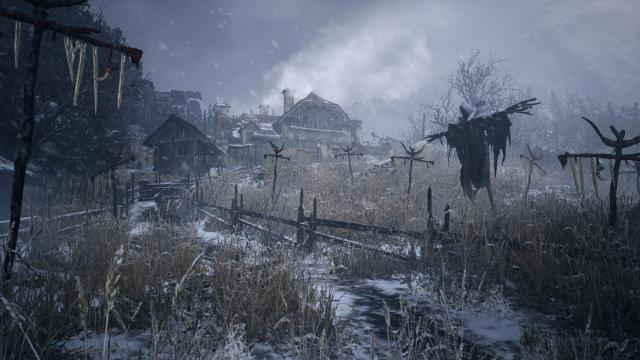
It helps that all the zones in the game are united by a central hub: the village itself. From there players can access the realms of the four "lords", visit the shop to buy and sell goods, travel to optional areas with treasures guarded by sub-bosses, and use collected keys, lock picks, and tools to open gated sections. Village is structurally a linear experience — it directs Ethan according to a predetermined sequence — but there are plenty of opportunities to delay the main quest while you try other things. In fact, some of the most special moments in the game involve these completely voluntary activities, whether it's slipping into a motorboat and speeding up a river to gain entry to a secret vault or trespassing in an old mill guarded by a cannibalistic terror.
That said, not all of the extracurricular activities are created equal. In fact, Village suffers somewhat from feature creep, as if the designers at Capcom didn't always know when to say "no". At around the halfway mark, the game introduces hunting and recipes, which really don't add anything meaningful to the experience. The same goes for several diorama-like labyrinths, where players must guide a ball awkwardly through a maze that rotates in 360 degrees. It's like Captain Toad but bad.
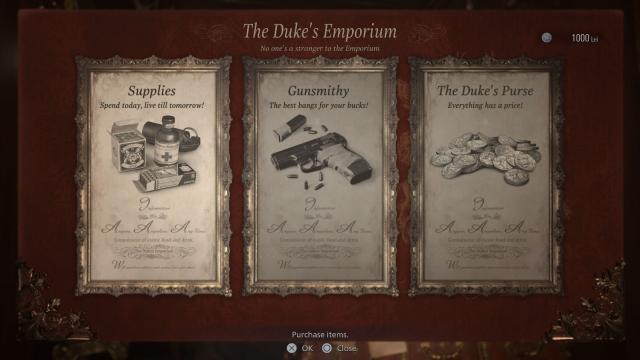
Although the folks at Capcom went slightly amiss with a couple of the ancillary features in Village, they nailed the fundamentals. Ethan's movement, aiming, and general gun-handling are much-improved over Resident Evil 7. Enemy artificial intelligence and variety is similarly superior, with many different monster types and unique behaviors. Combat in general is excellent, particularly in the game's action-heavy final third. There are plenty of opportunities for tactical decision-making, improvisation, and experimentation. It certainly doesn't hurt that the game offers an impressively deep arsenal of weapons, each with several modifications and upgrade paths.
You'll need all the weapons and upgrades you can find to survive every deadly boss battle in Village. While no individual fight eclipses the best of Resident Evil 7 — Marguerite Baker's second form and Jack Baker's third form are still tops — the collection as a whole is arguably superior.
Another area where Village improves upon Resident Evil 7 is puzzle-solving, thanks exclusively to the House Beneviento section. It's essentially one big puzzle, and it's outstanding. Players must manipulate objects, memorize patterns, and search for clues — at times under duress. Beneviento also stands as one of the single most distressing and horrifying chapters in the entire Resident Evil saga, with a monster that will chill you to the bone.
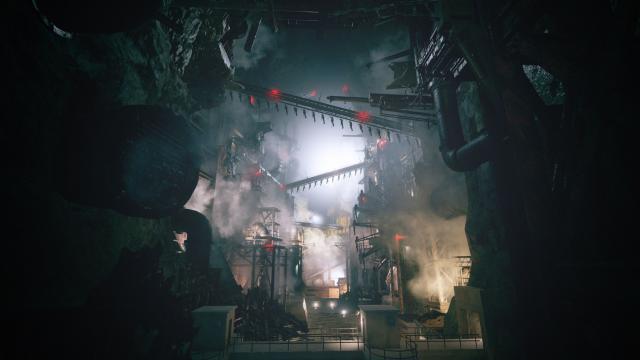
Village is able to evoke this kind of strong, visceral reaction in large part due to its realistic graphics, imaginative art direction, and expert use of sound design. The game looks amazing, even on the last-gen PS4, with fantastically detailed character models and extraordinary use of light and shadow. Stellar production design, some of the best of the generation, combines with this visual fidelity to create an incredibly rich, convincing, atmospheric world, filled with crumbling ruins, ornate chambers, bloodstained dungeons, and buzzing factories. Then there's sound design, the final piece of the illusion. Every growl, drip, wail, and shuffling noise in the dark summons the worst possible nightmare and creates a dreadful anticipation that's essential for a horror game like this. Indeed, the unsung hero of Village might just be Audio Director Wataru Hachisako.
Now, don't expect the PS4 to deliver Village at its most technically advanced. If you want the best of the best, check the game out on PC, PS5, or Xbox Series X. If you don't mind 900p and an unlocked framerate that operates in the 40-60 FPS range, however, then feel confident investing in this last-gen version. Apart from some late-loading textures and a few framerate hiccups when entering new areas, it performs very well.
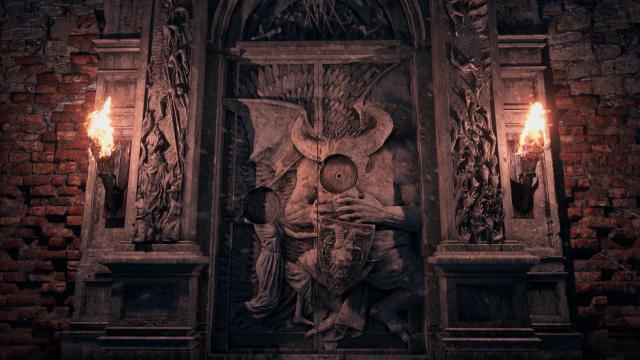
One quirk worth mentioning is camera wobble. This isn't a technical issue — more a stylistic one. By default, when Ethan moves, his head snaps back slightly, creating a swaying effect. It can be very distracting. Luckily, you can disable it entirely via the options menu.
Like Resident Evil 7 before it, Village lasts for about 10-11 hours. Yet that's just the beginning. You can initiate a New Game+ by loading your completed save, or start from scratch with one of four different difficulty settings. In addition, upon finishing the game the first time, you'll unlock the Extra Content shop, where you can spend Completion Points (CP) to purchase weapons, concept art, figures, and The Mercenaries mini-game, a new take on the fan-favorite horde mode.
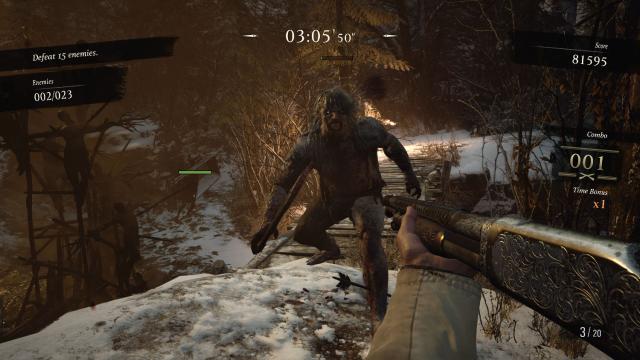
The Mercenaries is a great add-on that remixes locations and monsters from the main campaign in a series of timed challenges. By defeating as many enemies as possible in the shortest amount of time, you can earn high scores, which unlock new locales, permanent perks, and CP that can then be reinvested back into the game. Overall it's a fun, diverting mode that grants Village additional replay value. It's just a shame it lacks online leaderboards and any kind of cooperative multiplayer option.
The meandering 25-year evolution of Resident Evil continues with Village, a brilliant, beautiful, and bloody action-adventure title that borrows mechanics and designs from several successful games in the franchise and weaves them into a patchwork tapestry alongside a few blueprints lifted from other horror and action IPs. It's an audacious and ambitious game that ranks among the best of the series, even if it's a touch inharmonious.









